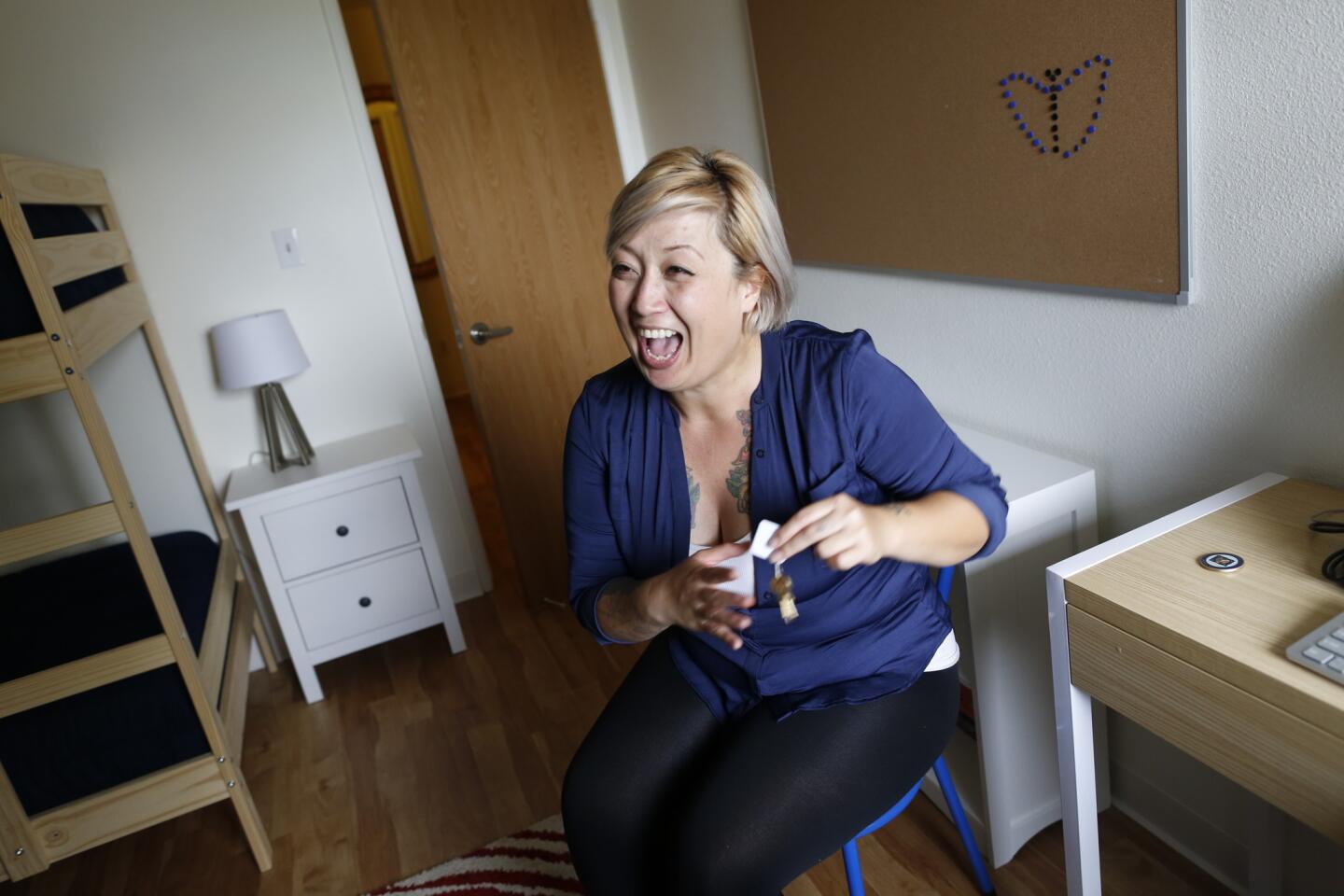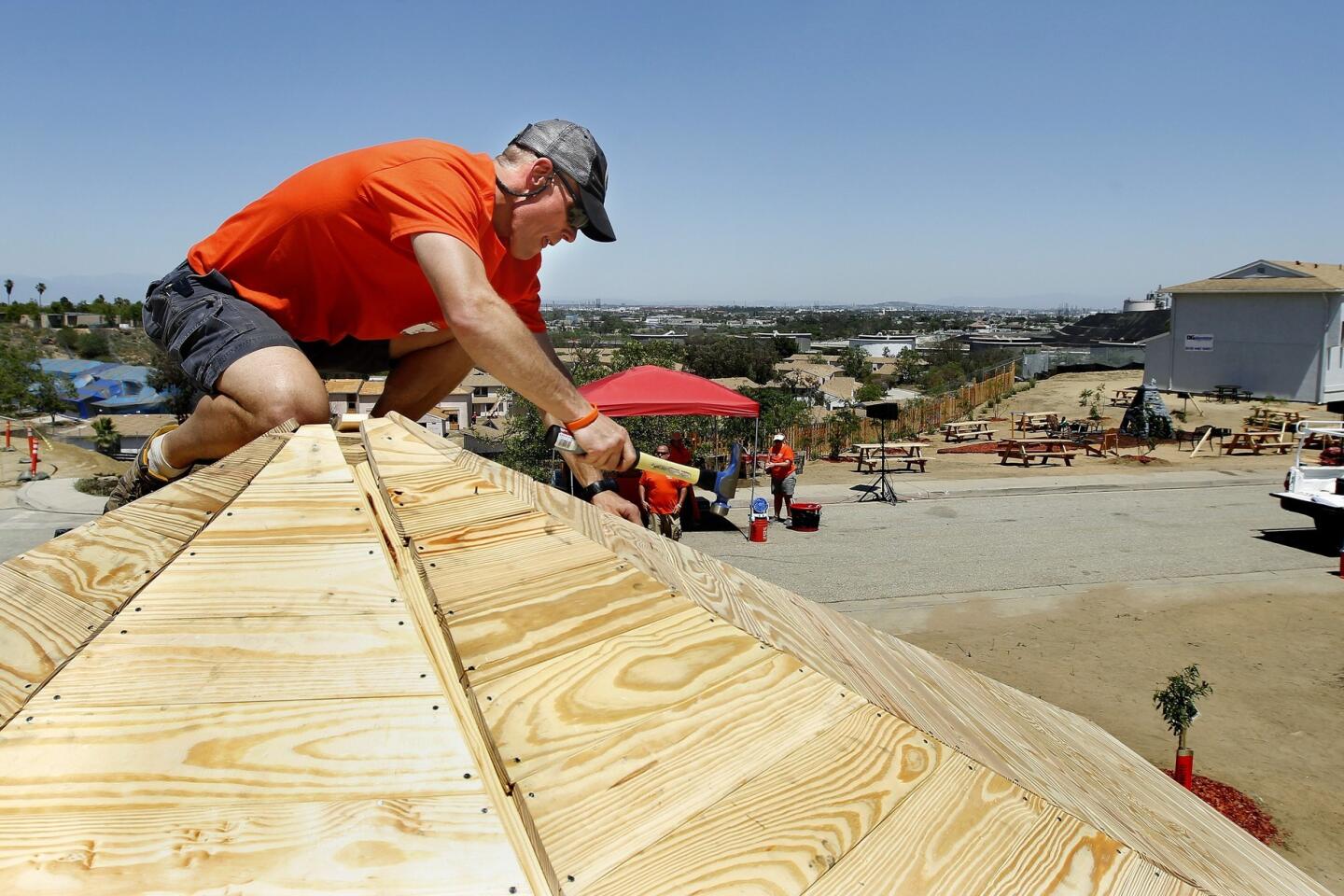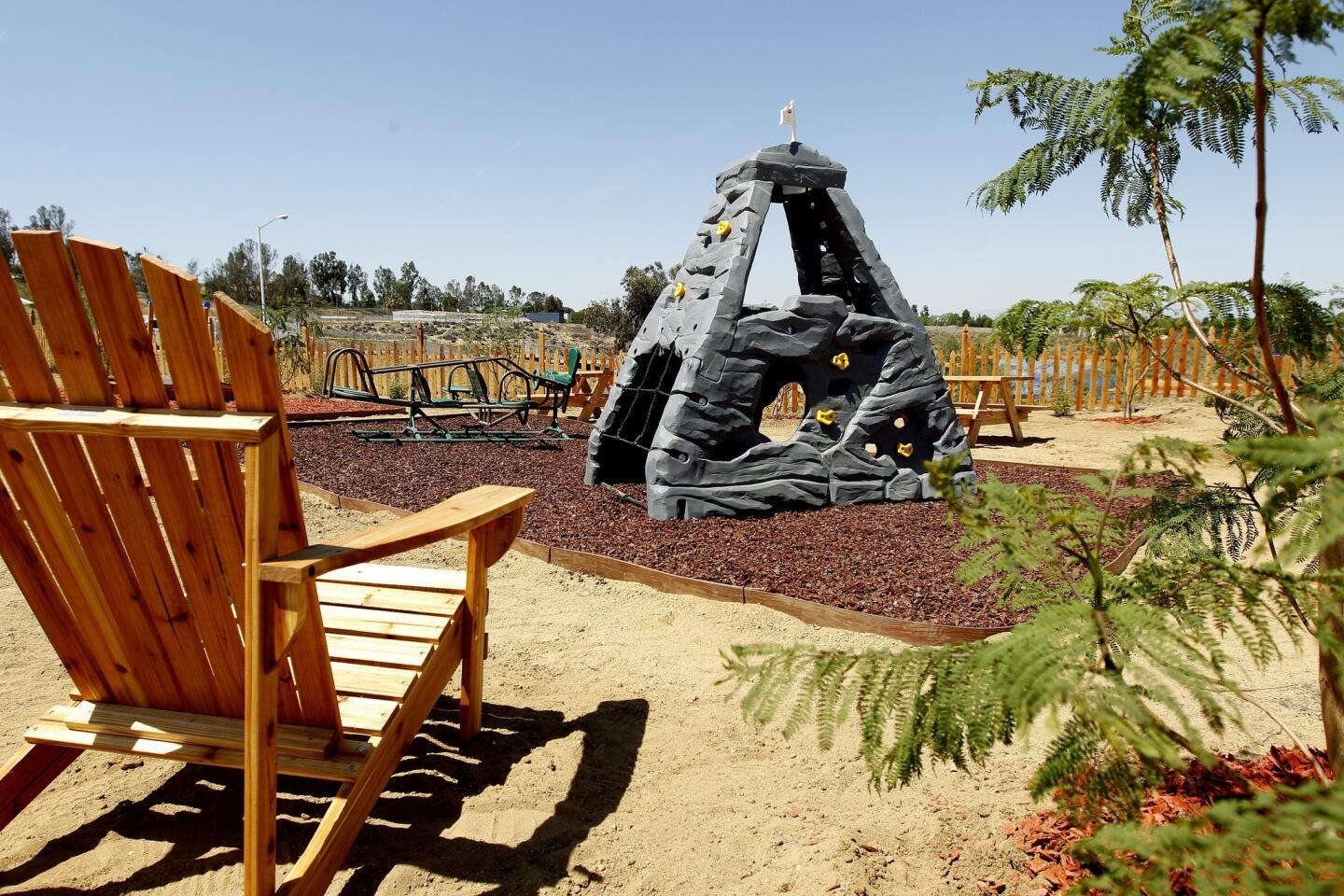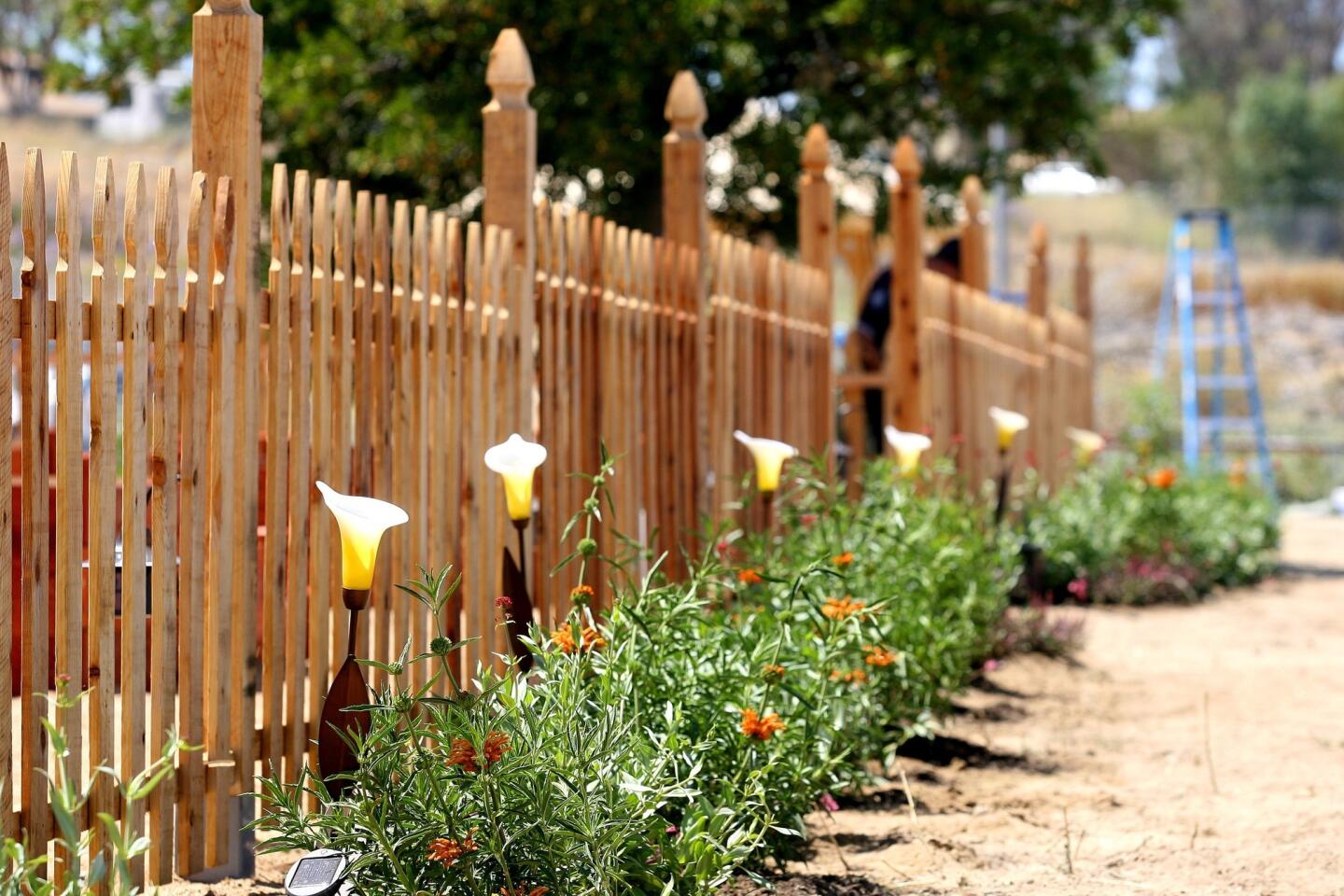San Pedro development will give female veterans a place to call home
- Share via
One of the first housing projects in the country focused on female veterans facing homelessness is nearing completion on a breezy San Pedro hilltop overlooking a butterfly preserve.
Volunteers of America is spending $15 million converting family housing the U.S. Navy left in 1997 into 74 townhomes for female veterans and their children. The Navy deeded a 9-acre site to the nonprofit service group at no charge as part of its base reuse project after the Long Beach shipyards shut down.
The group bid for the entire site, but the Navy awarded most of the land and houses to two private education institutions, Marymount California University and Rolling Hills Preparatory School, said Robert Pratt, president of Volunteers of America Greater Los Angeles.
“NIMBY being what it is, we got a little less than a third of the property,” he said.
Female veterans are the fastest-growing segment of the homeless population, according to the U.S. Department of Veterans Affairs. In 2013, 4,456 — or 8% — of the nation’s nearly 58,000 homeless veterans were women, the Department of Housing and Urban Development reported.
Although emergency shelters and temporary housing for homeless women are becoming more common, most long-term supportive housing for veterans is still geared toward men, Pratt said. The complex, which will provide mental health services and after-school activities, is one of the first permanent supportive housing projects targeting female veterans and their children, said Vincent Kane, director of the National Center on Homelessness Among Veterans.
Male veterans with children may be accepted if they are heads of household. Pratt said his group hopes the complex will become a national model.
The Los Angeles Homeless Services Authority, in its June 2013 report, said the number of homeless female veterans locally had dropped by almost two-thirds since 2011, to 354 from 909. Shanita Seamans, program manager for Volunteers of America, said many female veterans sleep in their cars or couch-surf and don’t make the statistics. Others don’t identify themselves as veterans because they did not see combat, she added.
Female veterans have the same traumatic wartime experiences that drive their male counterparts into homelessness, Seamans said. Witnessing young children ripped apart by explosive devices is especially difficult for mothers, said Laurie Whalen-Martinez of SHAWL Women’s House, a Harbor Area shelter that will refer women to the new complex.
They also contend with sexual trauma and domestic abuse. The Department of Veterans Affairs says 1 in 5 female veterans reports sexual trauma, including rapes by servicemen, compared with 1 in 100 men. A little more than half of homeless female veterans experienced sexual assault while in the military, according to a 2012 VA report.
Many don’t report sexual misconduct for fear of being branded as troublemakers, said Seamans, adding that she never complained about the harassment she experienced in the Army.
“It doesn’t just relate to combat; it’s more being in a male-dominated institution that’s slow to change culturally,” Pratt said.
The complex, which will be called Blue Butterfly Village, rises from a field of purple and yellow wildflowers, and has dramatic vistas of rolling hills in the distance. Last week, 350 volunteers from Home Depot planted a community garden and orchard and built a gazebo and playground on the site, which will open in March.
“These women are not damaged, they’re not ill,” Pratt told the Home Depot workers. “They’ve just had traumatic experiences. They need a place of their own.”
More to Read
Sign up for Essential California
The most important California stories and recommendations in your inbox every morning.
You may occasionally receive promotional content from the Los Angeles Times.

















